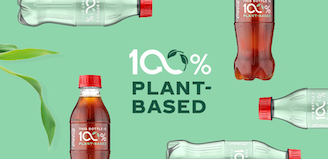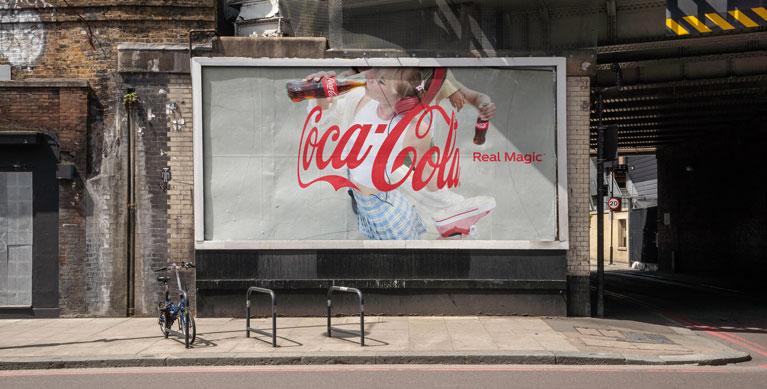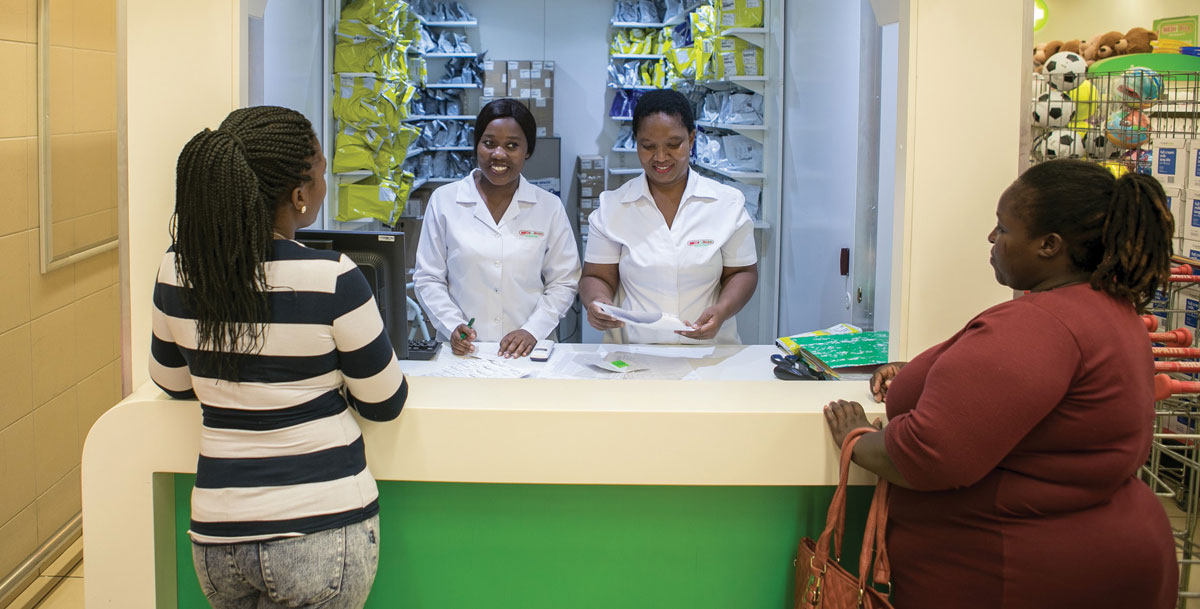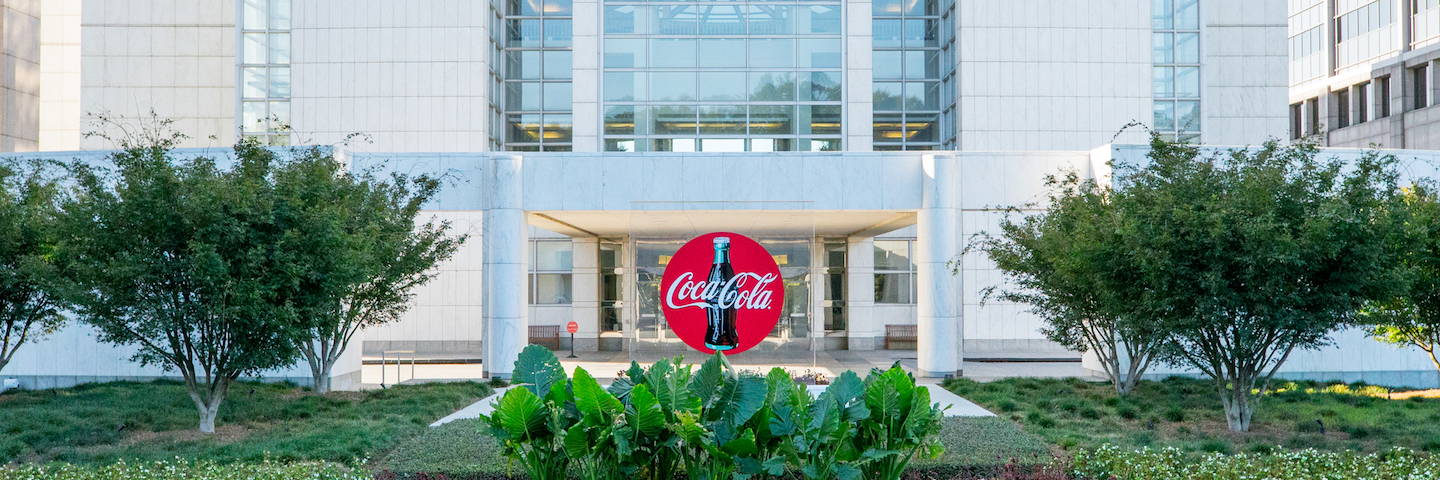
- Logo
- Our company
- Our brands
- Sustainability
- Social impact
- Careers
- News
- Investors
- Search
- Language
- Reciteme
Search

Accelerating Transformation: Coca‑Cola COO Brian Smith on the Company’s Strategic Pivots
12-08-2020
The Coca‑Cola Company’s refreshed operational model and more aligned bottling network position the system to emerge stronger from the COVID-19 pandemic, President and COO Brian Smith said Dec. 7 at a major industry conference.
In a Q&A with Beverage Digest Editor and Publisher Duane Stanford during the 2020 Future Smarts event, Smith tackled a range of topics related to the company’s priorities heading into 2021.
Here are a few highlights:
…on how the pandemic accelerated the company’s ‘Beverages for Life’ strategic journey:
“We were already on a course of change before the pandemic. We were working on culture. We had curated a lot of talent, which we continue to do. The [next] thing we needed to do was redesign the organization … We've gotten to where we are by delegating a lot of authority to the geographies, and they were able to build our businesses with the bottlers… But we'd gotten to a point where it's really difficult to scale things.”
“We needed to pivot and rebalance decisions and the way we allocate resources, not just in terms of geographies, but across categories so we can go after the big profit pools and big growth areas as a system, globally, as opposed to everybody on their own sequentially and in a less-organized fashion.”
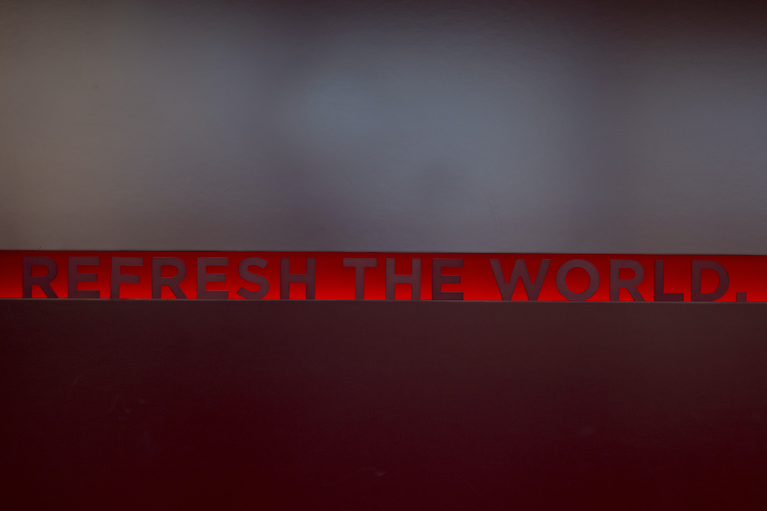
…on decisions to streamline the company’s beverage portfolio to focus on consumer needs and drive innovation effectiveness:
“We’re decreasing the number of brands globally so we can focus on those that generate growth and profit going forward. On the innovation front, we will continue to draw on the creativity and innovation generated from different parts of the world. The funnel and the filter will be a team that can look across these opportunities in terms of scalability, growth potential and profitability going forward. We'll be much better at curating potential innovations.”
…on Costa and the growth potential of the coffee category:
“The fact that we bought Costa opens up all kinds of growth opportunities. We bought the brand because that’s our entry to have critical mass in the coffee space. The retail part of it is really good in some ways, because it has enabled us to learn a lot about coffee in general. But our intent is to be able to grow in a lot of the other platforms.”
“We have a lot of places where we can go with the Costa platform. Retail will be part of it, in the sense that it's a necessary ingredient to create awareness and sampling. But we intend to play in a much more multi-platform way in the coffee space. … One of the big pieces we were missing in away-from-home channels was coffee, which represents a big part of what [our bottlers] sell.”
…on the health of the bottling system globally:
“From my perspective, globally, it’s more aligned than ever. And I don't mean that in just one region, I mean globally. The bottlers are more aligned among themselves, so it reinforces that our success is going to be in our ability to align to scale the big bets we have in front of us, not only the company but with our bottlers.”
…how bottler refranchising in North America positioned the system to respond to the pandemic:
“The work that was done in terms of setting up the governance structure to be able to manage across a multi-bottler territory like the United States and Canada has played well for us in the pandemic. The fact that those routines and ways of making decisions were set in place enabled us to make quick decisions on a lot of fronts, in terms of how we pivot toward at-home, how we addressed headwinds in the away-from-home market, how the bottlers could work together on the supply chain and procurement and dealing with cans and those kinds of things.”
“The bottlers really came together and aligned to be able to make it better for the system as a whole, so it enabled us to kind of look up from our own neck of the woods and think about it in a more enterprise, system way to be able to come out of this stronger than when we went into it.”
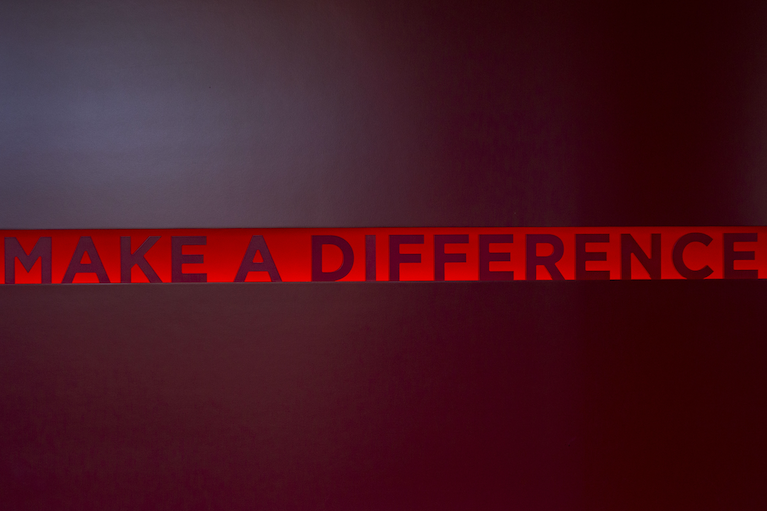
…on life for a multinational COO in the middle of a pandemic:
“I think it’s the same for most of us. The ‘aha moment’ for me was that we can actually continue to conduct business as we had, actually in a lot of ways better because we didn’t have the amount of lost time between setting up meetings. We can make direct decisions faster… We’re able to move much quicker on a lot of fronts that we were moving on anyway before the pandemic, but [it] enabled us to accelerate those things. All in all, we’ve learned how to work in a different way, which has worked really well and surprised all of us.
If you think about it in terms of people… it has had a huge toll on a lot of our employees. Those that have small children or other kinds of extenuating circumstances that make it difficult to work at home… that has been difficult, so it carries a weight. Going forward, it will definitely change the way we work. We won’t go back to the same normal that we had before the pandemic.”
….on leadership:
“…I believe that the best kinds of organizations are those that have high engagement from the employees and that are self-driven. In other words, flatter organizations where decisions are made lower down in the organization. If you think about it from that perspective in terms of context, there are three buckets that I would highlight.
“The first one is ‘human characteristics of a leader’… vulnerability, authenticity and passion.”
“The second bucket is ‘the what’s’, and that is the typical ‘Where are we going, which hill we will climb?’ clarity in terms of communicating that to the enterprise. And then range, and what I mean is not just having one way of being, but having a range of leadership to be able to deal with different people in different ways because that’s the way you’ll get them motivated.
“The third bucket I would say is the ‘hows,’ having necessary and sufficient routines to make sure that you stay on course and can pivot accordingly… (having) discipline and being super clear about not only the vision of where you’re trying to get to and what the priorities are, but also the constraints that people have in their jobs to be able to get their work done. Because if you don’t do that the right way, it’s very hard to empower people without everyone going off and doing whatever they want to.
“So you ultimately have an organization that trusts one another so that you can have learning… and you create positive motivation for the organization to self-motivate and push forward on the priorities.”
Forward-Looking Statements
This article may contain statements, estimates or projections that constitute forward statements as defined under U.S. federal securities laws. Generally, the words believe expect, estimate, anticipate, project, will and similar expressions identify forward-looking statements, which generally are not historical in nature. Forward-looking statements are subject to certain risks and uncertainties that could cause The Coca‑Cola Company's actual results to differ materially from its historical experience and our present expectations or projections. These risks include, but are not limited to, the negative impacts of the novel coronavirus (COVID-19) pandemic on our business; obesity and other health-related concerns; evolving consumer product and shopping preferences; increased competition; water scarcity and poor quality; increased demand for food products and decreased agricultural productivity; product safety and quality concerns; perceived negative health consequences of certain ingredients, such as non-nutritive sweeteners and biotechnology-derived substances, and of other substances present in our beverage products or packaging materials; an inability to be successful in our innovation activities; an inability to protect our information systems against service interruption, misappropriation of data or breaches of security; failure to comply with personal data protection and privacy laws; failure to digitize the Coca‑Cola system; changes in the retail landscape or the loss of key retail or foodservice customers; an inability to expand operations in emerging and developing markets; fluctuations in foreign currency exchange rates; interest rate increases; an inability to maintain good relationships with our bottling partners; a deterioration in our bottling partners financial condition; increases in income tax rates, changes in income tax laws or unfavorable resolution of tax matters; increased or new indirect taxes in the United States and throughout the world; an inability to successfully manage the possible negative consequences of our productivity initiatives; an inability to attract or retain a highly skilled and diverse workforce; increased cost, disruption of supply or shortage of energy or fuel; increased cost, disruption of supply or shortage of ingredients, other raw materials, packaging materials, aluminum cans and other containers; increasing concerns about the environmental impact of plastic bottles and other plastic packaging materials; changes in laws and regulations relating to beverage containers and packaging; significant additional labeling or warning requirements or limitations on the marketing or sale of our products; unfavorable general economic conditions in the United States; unfavorable economic and political conditions in international markets; litigation or legal proceedings; conducting business in markets with high-risk legal compliance environments; failure by our third-party service providers and business partners to satisfactorily fulfill their commitments and responsibilities; failure to adequately protect, or disputes relating to, trademarks, formulae and other intellectual property rights; adverse weather conditions; climate change and legal or regulatory responses thereto; damage to our brand image, corporate reputation and social license to operate from negative publicity, whether or not warranted, concerning product safety or quality, workplace and human rights, obesity or other issues; changes in, or failure to comply with, the laws and regulations applicable to our products or our business operations; changes in accounting standards; an inability to achieve our overall long-term growth objectives; deterioration of global credit market conditions; default by or failure of one or more of our counterparty financial institutions; an inability to renew collective bargaining agreements on satisfactory terms, or we or our bottling partners experience strikes, work stoppages or labor unrest; future impairment charges; multi-employer pension plan withdrawal liabilities in the future; an inability to successfully integrate and manage our company-owned or -controlled bottling operations or other acquired businesses or brands; an inability to successfully manage our refranchising activities; failure to realize a significant portion of the anticipated benefits of our strategic relationship with Monster Beverage Corporation; global or regional catastrophic events; and other risks discussed in our filings with the SEC, including our Annual Report on Form 10-K for the year ended December 31, 2019 and our subsequently filed Quarterly Reports on Form 10-Q, which filings are available from the SEC. You should not place undue reliance on forward-looking statements, which speak only at the date they are made. We undertake no obligation to publicly update or revise any forward-looking statements. intend estimate, anticipate, project, will and similar expressions identify forward-looking statements, which generally are not historical in nature. Forward-looking statements are subject to certain risks and uncertainties that could cause The Coca‑Cola Company™s actual results to differ materially from its historical experience and our present expectations or projections. These risks include, but are not limited to, the negative impacts of the novel coronavirus (COVID-19) pandemic on our business; obesity and other health-related concerns; evolving consumer product and shopping preferences; increased competition; water scarcity and poor quality; increased demand for food products and decreased agricultural productivity; product safety and quality concerns; perceived negative health consequences of certain ingredients, such as non-nutritive sweeteners and biotechnology-derived substances, and of other substances present in our beverage products or packaging materials; an inability to be successful in our innovation activities; an inability to protect our information systems against service interruption, misappropriation of data or breaches of security; failure to comply with personal data protection and privacy laws; failure to digitize the Coca‑Cola system; changes in the retail landscape or the loss of key retail or foodservice customers; an inability to expand operations in emerging and developing markets; fluctuations in foreign currency exchange rates; interest rate increases; an inability to maintain good relationships with our bottling partners; a deterioration in our bottling partners™ financial condition; increases in income tax rates, changes in income tax laws or unfavorable resolution of tax matters; increased or new indirect taxes in the United States and throughout the world; an inability to successfully manage the possible negative consequences of our productivity initiatives; an inability to attract or retain a highly skilled and diverse workforce; increased cost, disruption of supply or shortage of energy or fuel; increased cost, disruption of supply or shortage of ingredients, other raw materials, packaging materials, aluminum cans and other containers; increasing concerns about the environmental impact of plastic bottles and other plastic packaging materials; changes in laws and regulations relating to beverage containers and packaging; significant additional labeling or warning requirements or limitations on the marketing or sale of our products; unfavorable general economic conditions in the United States; unfavorable economic and political conditions in international markets; litigation or legal proceedings; conducting business in markets with high-risk legal compliance environments; failure by our third-party service providers and business partners to satisfactorily fulfill their commitments and responsibilities; failure to adequately protect, or disputes relating to, trademarks, formulae and other intellectual property rights; adverse weather conditions; climate change and legal or regulatory responses thereto; damage to our brand image, corporate reputation and social license to operate from negative publicity, whether or not warranted, concerning product safety or quality, workplace and human rights, obesity or other issues; changes in, or failure to comply with, the laws and regulations applicable to our products or our business operations; changes in accounting standards; an inability to achieve our overall long-term growth objectives; deterioration of global credit market conditions; default by or failure of one or more of our counterparty financial institutions; an inability to renew collective bargaining agreements on satisfactory terms, or we or our bottling partners experience strikes, work stoppages or labor unrest; future impairment charges; multi-employer pension plan withdrawal liabilities in the future; an inability to successfully integrate and manage our company-owned or -controlled bottling operations or other acquired businesses or brands; an inability to successfully manage our refranchising activities; failure to realize a significant portion of the anticipated benefits of our strategic relationship with Monster Beverage Corporation; global or regional catastrophic events; and other risks discussed in our filings with the SEC, including our Annual Report on Form 10-K for the year ended December 31, 2019 and our subsequently filed Quarterly Reports on Form 10-Q, which filings are available from the SEC. You should not place undue reliance on forward-looking statements, which speak only at the date they are made. We undertake no obligation to publicly update or revise any forward-looking statements.
